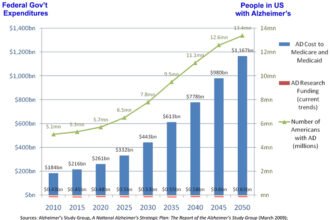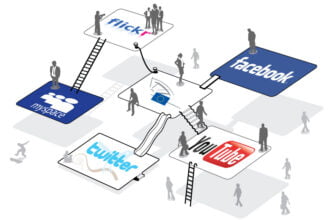With the re-election of President Obama, the healthcare reform train is moving fast and on track to serve as the “lead domino” as far as tangential industry change is concerned. While many would agree that massive change is exactly what the doctor ordered for the healthcare industry, a subset of influencers and actual clinicians still view technological change in a glass half empty kind of way. In other words, some still fear that the ongoing evolution of health IT will take the focus off of patient care and place it instead on the overhaul of antiquated clinical and business practices.
With the re-election of President Obama, the healthcare reform train is moving fast and on track to serve as the “lead domino” as far as tangential industry change is concerned. While many would agree that massive change is exactly what the doctor ordered for the healthcare industry, a subset of influencers and actual clinicians still view technological change in a glass half empty kind of way. In other words, some still fear that the ongoing evolution of health IT will take the focus off of patient care and place it instead on the overhaul of antiquated clinical and business practices.
You’ll never hear anyone – be it patient, provider, payer or health IT vendor – endorse a technology or policy that puts patient care second on the list of healthcare priorities. Never. What you will hear, however, is that if we don’t find ways to apply technology and best practices to address healthcare inefficiencies (and other government inefficiencies for that matter) and out of control costs then issues like the “fiscal cliff” and “debt ceiling” will continue to haunt U.S. government and the general public at large for the foreseeable future.
As we head into the final weeks of 2012, I’ve been thinking a great deal about the key technological innovations that will take center stage in healthcare for the coming year. So, without further ado, here’s my take on the top health IT trends that hold the most potential to improve both the quality and the efficiency of patient care over the coming year.
- Fact or Fiction: More Data, More Problems?
Yes, that is a play-off of Notorious B.I.G’s hit song, “Mo Money, Mo Problems.” In this song, B.I.G states the following: “The more money we come across, the more problems we see.” I won’t quote any other lyrics from that song for fear of offending someone but let’s face it; the same could be said for data in healthcare. It seems the more information we get from the advent of technology in healthcare, the more issues bubble to the surface – be it readmissions penalties or mismanaged meaningful use reimbursement. Still, I think these are good problems to have. This tells me that while we may not yet be able to wrap our heads around big data in healthcare to solve specific problems, we are starting to shed light on areas of waste or misuse because of our ability to tap into bits and pieces of these vast data reserves.
According to one clinician I recently spoke with, “We [doctors] are dying of thirst in an ocean of data.”
The beauty of electronic health records (EHRs) is we now have more information stored digitally than ever before. However, the healthcare industry faces challenges when it comes to mining the data because it is stored in various repositories, both clinical and financial, and the content available is in different forms – structured and unstructured – unlike other industries. For providers and clinicians to shift successfully towards Accountable Care and conquer challenges like ICD-10 and meaningful use, we need to simplify how to access, analyze and make data actionable so providers and clinicians can make wise patient care decisions.
In 2013, I think we’ll see more hospitals focusing first and foremost on data governance and unifying the manner by which information is captured and organized. Realistically, you can’t have a big data problem without, you guessed it, data. Second, hospitals will invest in automation and natural language understanding (NLU) to make sense of large data sets so they can get insight it into the hands of decision-makers in a timely fashion. Through smart data governance and the use of intelligent technologies, providers will be able to transform existing structured and unstructured data into actionable information, streamlining workflow and enhancing the overall model of patient care.
By the end of 2013, I expect that we’ll stop talking about healthcare’s data problem and instead, start pointing to specific use cases that exemplify healthcare’s proven data opportunity.
- The Perfect Match: Mobile and Voice
According to Manhattan Research, the use of tablets among doctors doubled in 2012. In addition, a recent HIMSS Mobile Technology survey found that 93 percent of physicians surveyed use mobile health technology in their day-to-day activities. Through smartphones and integrated applications, clinicians and patients are demanding better and faster access to information and answers anywhere and anytime, shaping healthcare in a way we haven’t seen before.
While I expect we’ll see increased mobile adoption by the healthcare workforce in the coming year, not a shocker by any means, I think this adoption will be driven by two main things: The lowering of the security and privacy guard by hospital leadership as a result of more focused, enterprise-wide adoption policies, and the use of speech recognition to streamline both data-input and navigation of mobile healthcare applications.
In 2013, I predict that voice-enabled healthcare applications, including EHRs, will begin evolving into intelligent “virtual assistants.” Doctors who are snatching up iPads like never before will reap the benefits of this consumerization of mobile health IT in 2013 – including tools driven not just by keystrokes, but by voice, gestures and virtual assistants helping to guide and inform them as they care for patients.
These intelligent, voice-enabled mobile technologies will make healthcare faster, easier and more versatile than ever before. Technology will deliver widespread connectivity, allowing providers to search, capture and report information in a variety of care settings and with different devices, providing them with the connectivity to navigate the healthcare system outside of hospital walls. Through these same intelligent technologies, physicians will be able to ask a mobile device a question such as, “What are the dosing requirements of Benadryl for a 35 pound female infant?” and get an immediate response from a validated source. Future advancements in mobile speech recognition and understanding will lead to the reinvention of how doctors interact and use health IT in the coming year.
- Healthcare’s Prescription: Dose of Simplicity
When it comes to technological design, Apple hit the nail on the head. People, including doctors, want technology that’s easy to use, easy on the eye and that can travel universally with them from desktop to mobile and vice versa.
As government and businesses look for ways to address healthcare’s headaches, they are increasingly taking a page out of Apple’s playbook by offering simple creative approaches to large-scale problem solving. Whether it’s the launch of another developer contest aimed at redesigning the EHR or a video challenge focused on highlighting the positive impact health IT has had on patient care, efforts aimed at spurring innovation in healthcare are getting creative and more consumer-focused. Nonetheless, the beauty of these contests and challenges rests in the simple, fun approach taken when it comes to this widespread engagement, and tapping into the power of the crowd.
From a health IT vendor perspective, I think 2013 will be a year where design takes center stage. The market rush to get EHRs to hospitals has subsided and as providers begin to get a solid handle on this technology, I expect vendors will refocus efforts on simplifying design and usability. The question is, with the expected consolidation of EHR vendors and the continual innovation from each company, which one will win the “simplicity” battle in 2013? Place your bets in the comments below.
In sum, 2013 will be the year that “Doctor 2.0″ shifts from near horizon to front doorstep. Moreover, it will be the year hospitals turn the corner from frustration to appreciation as technology evolves from the ground up and becomes infused with intelligence and simplicity. As we stand on the cliff of a healthcare revolution, data insight, mobility and a renewed focus on finding simple answers for complex problems will be the tri-fecta that dominates healthcare transformation in 2013.








